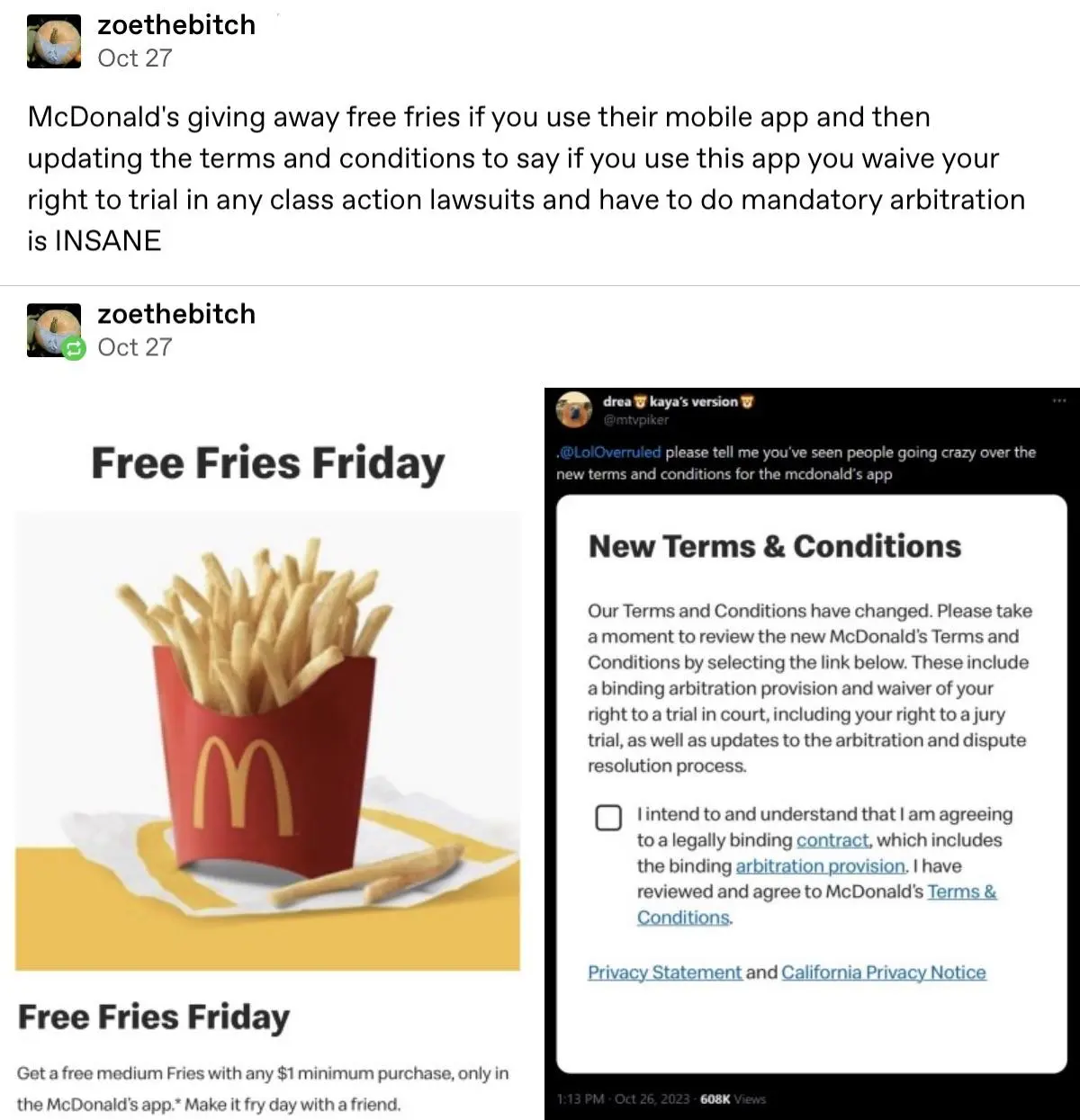this post was submitted on 03 Nov 2023
962 points (100.0% liked)
196
16842 readers
1909 users here now
Be sure to follow the rule before you head out.
Rule: You must post before you leave.
founded 2 years ago
MODERATORS
you are viewing a single comment's thread
view the rest of the comments
view the rest of the comments

Things like this make me think we need to change contract law to include some kind of requirement that whoever is entering into a contract have actually read and understood the contract in order for their signature on it to be meaningful. I'm not entirely sure how you'd go about setting up a system to prove this, so some compromise to practically might have to be made, but some possibilities I can see might be having the signer initial or check off each point individually, having a physical contract signing be accompanied by video of the person reading through the contract or having it explained to them, or having a neutral third party witness also sign to affirm that they witnessed this being done, or in the case of digital contracts, having each point be ticked off individually with a checkbox for a given section not made available until after a reasonable amount of time to read the section has elapsed since the previous checkbox was checked, and having a requirement that contracts made to be signed by people who are not lawyers must be written so as to be understandable by someone not versed in legal jargon.
It would be a massive headache I realize, since it would make anything where contracts are agreed to take longer and have more paperwork to document things or programming to be done for digital ones, but on the plus side, it would disincentise companies making huge terms of service contracts and end user license agreements that everybody knows virtually nobody actually reads, and make people more aware of what they're actually agreeing to.
I hate to talk like a law student but that's sort of the system we already have. When a person certifies that they have read a contract (such as terms and conditions), it does actually mean something. No one would want to do business if anyone could be released from a contract just because they were lying about whether they agreed to be bound by it.
You might be able to think of it like the safety presentation that happens before takeoff on every commercial flight in the US. If you look around at that time, very few people are ever paying attention to the video or flight attendant. Why is that, if everyone is supposed to be concerned about their own safety? Maybe they think this presentation will be the same as all the others, so they can safely ignore it. Does that make it the airline's fault if a person doesn't know where the emergency exits are when something does happen? No, the typical intuition - and a relatively necessary assumption on the airline's part - is that each person is responsible for knowing the information given to them in that presentation.
Similarly, it does not necessarily change much if a person has to check off multiple boxes instead of just one, or if they have to wait a few minutes before they can sign off, etc. People will tune out whatever they want to tune out, but we can't have a workable system if that's what absolves them of responsibility.
--That being said, US contract law does take this to some extremes that should be carved out as unacceptable exceptions to the rule. The case of Carnival Cruise Lines, Inc. v. Shute comes to mind where passengers were bound by terms printed on the back of a cruise ticket that they only received after they already paid for it.
The flight thing isn't about the passengers paying attention, it's about the airline being required to make the information available in a clear and concise way. They aren't required to provide interpreters for blind and deaf passengers, the aircraft is structured to make deboarding easy and safe. It's assumed that enough of the passengers will get the gist of it that in the event of an emergency enough people do the right thing that the rest will follow.